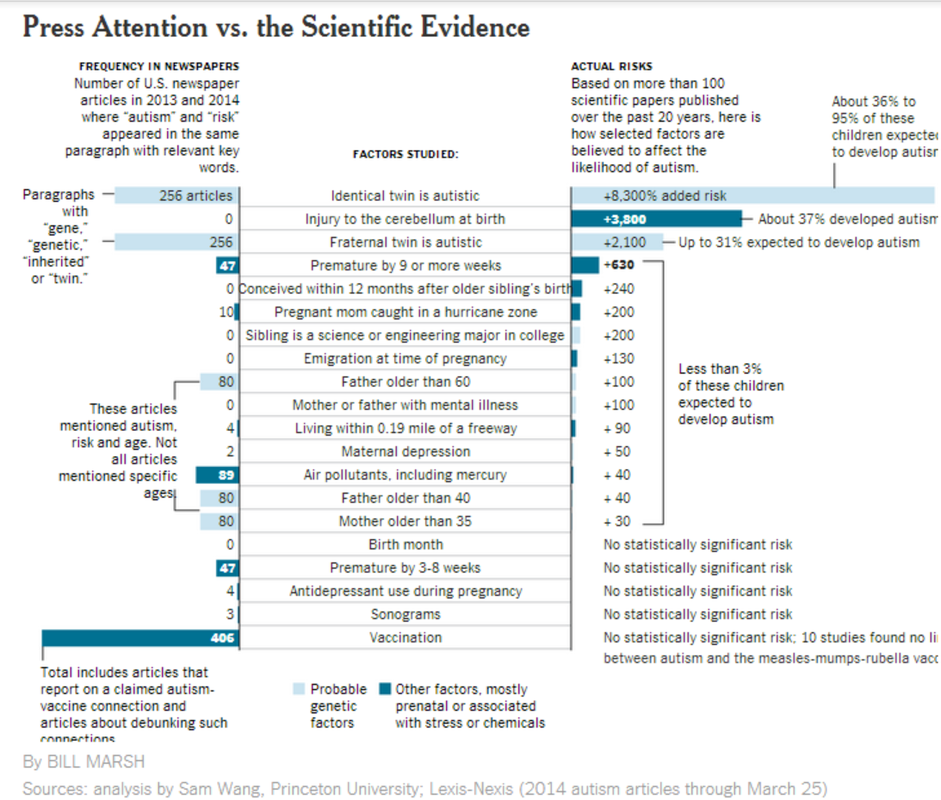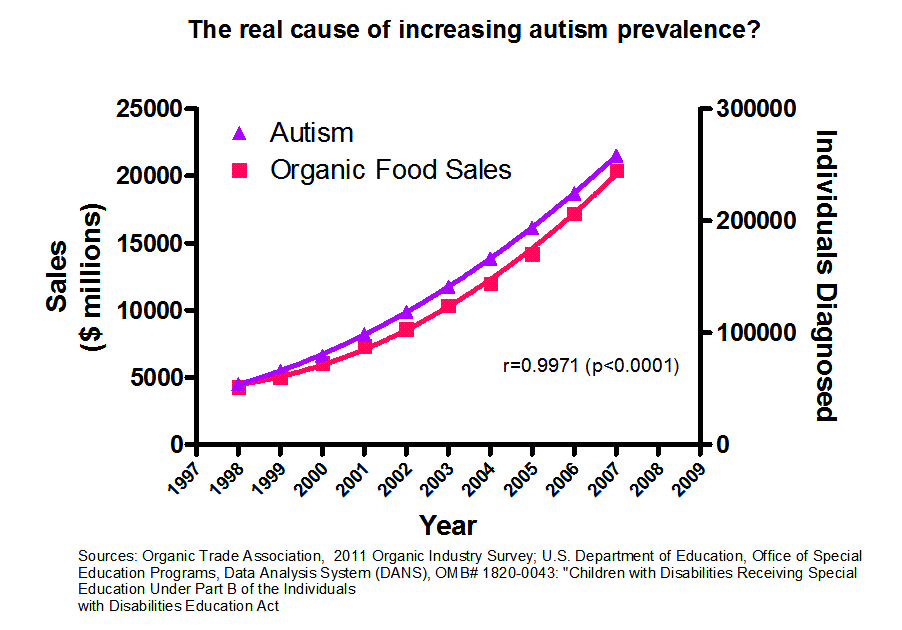That's why I LOVE this chart! It does a fantastic job of summing up what science has to say about possible correlations (which are not causes, simply things that we see a relationship with, such as science majors) with autism vs what the media has to say. You'll note there's not much of a relationship between the two.
If you're interested in learning more about the cause from a science-minded souce, by the way, I really recommend watching this TED talk which summarizes what we know so far:
As always, if you have any questions about autism and science - found an article you don't quite understand or heard a claim that doesn't quite make sense - feel free to contact me and I'm more than happy to help you with it!
-Creigh


 RSS Feed
RSS Feed
